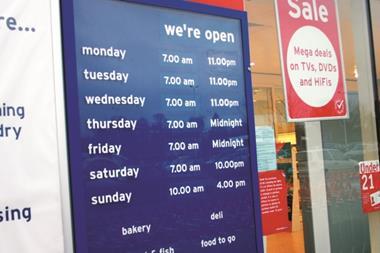PM had "no plans" to relax Sunday Trading laws in April

The Prime Minister reassured campaigners as recently as April that the Conservatives had no “current plans” to relax Sunday trading laws.
ALREADY HAVE A REGISTERED USER ACCOUNT? PLEASE LOG IN HERE
To read the full story join the ConvenienceStore.co.uk community today!
Registration is quick and easy and provides access to:
- Unlimited ConvenienceStore.co.uk articles
- Our great range of newsletters
- Content you’ve saved for later via the ‘my library’ feature
And much more…

























